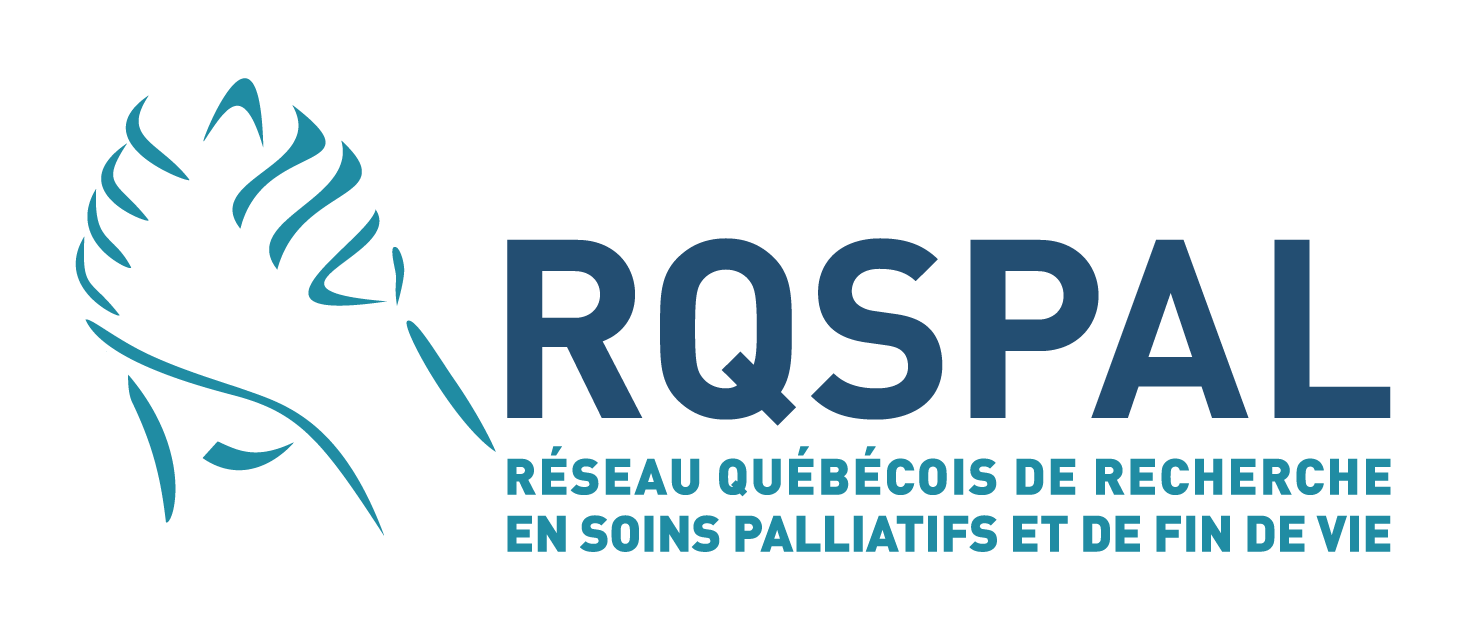A regular member is a researcher, as defined by the FRQ, actively engaged in research in the field of palliative and end-of-life care. Additionally, regular members must adhere to the mission of the RQSPAL.
The status of “regular member”:
- is granted for a period of four years and is renewable;
- confers the right to vote at the RQSPAL General Assembly;
- grants the right to attend our annual Scientific Day free of charge;
- offers the possibility of holding administrative positions within the RQSPAL;
- grants the privilege of submitting a funding application as the principal investigator under the RQSPAL’s financial support programs for project calls;
- grants the privilege of applying for the financial support program for organizing scientific activities and for open access publication.
The absence of any research activity or participation in Network activities for a period of two years will terminate this regular membership status.
Please note that membership as a regular member is completely free.
For information on our regular members, please consult the list of regular members.
To establish your eligibility as a regular member, very strict guidelines have been issued by the FRQ. Click here to view them (only in french).
Below is a summary of the FRQ statuses that qualify for the “regular member” category of the RQSPAL, all conditions of a status must be met for the application to be accepted:
1. University Researcher:
An individual who:
a) has a Quebec university affiliation that allows them to independently supervise graduate students and research projects;
b) holds a Ph.D. or has been recognized as equivalent by a Quebec university;
c) is paid:
i) for a regular professor position, or a grant-funded university professor position, in a university institution recognized by the FRQ for managing funding;
OR
ii) as a full-time researcher with a Ph.D., in an institution recognized by the FRQ for managing funding and part of CIUSSS, CISSS, or other public health and social services network establishments with an institutional university affiliation.
Also qualifies:
d) an early-career individual meeting criteria a) and awaiting qualification for criterion b) by their institution;
e) a retired individual from a recognized institution who no longer meets criterion a) but continues their research or supervision activities in said institution with its formal commitment.
2. University Clinician Researcher:
An individual who:
a) is paid for a full-time or part-time position by an employer institution recognized by the FRQ for managing funding;
b) has a Quebec university affiliation that allows them to independently supervise graduate students and research projects;
c) has completed a professional degree in human health, followed by at least two years of research training or equivalent;
d) holds a valid practice license allowing them to practice their profession in Quebec.
Also qualifies:
e) an early-career individual meeting criteria a) and c) and awaiting qualification for criterion b) by their institution;
f) a retired individual from a recognized institution who no longer meets criterion a) but continues their research or supervision activities in said institution with its formal commitment.
3. College Researcher:
An individual with a master’s degree employed for the equivalent of a full-time task in colleges recognized by the FRQ for managing funding and the college technology transfer centers (CCTT).
This individual must also have the professional autonomy to lead research projects and hold:
a teaching position in a college,
OR
a researcher position in a CCTT,
OR
a position in a college with at least 75% of the task being research activities.
4. Other Research Statuses
Individuals who do not qualify under statuses 1 to 3. Other research statuses include the following five categories:
4.1. Governmental Researcher recognized by the FRQ
An individual who:
a) is paid for a regular researcher position in a governmental institution recognized by the FRQ for managing funding;
b) holds a Ph. D.
4.2. Researcher from a non-FRQ-recognized government or private sector organization
An individual employed by a Quebec organization other than post-secondary, holding a full-time researcher position, and contributing to the project or program based on their research expertise.
4.3. Practice-based Individual
An individual whose contribution to the project or program is based on practical skills and knowledge rather than research expertise. The individual is employed by a Quebec organization. Their skills and knowledge, other than artistic or literary, can be diverse, including professional, technical, or practical.
4.4. Artist
An individual whose contribution to the project is based on creative or interpretive skills recognized by peers and applied in a professional context. They work independently and are domiciled in Quebec, or work for a Quebec organization.
4.5. Individual Contributor
An individual domiciled in Quebec contributing independently to the project or program. Their contribution should not concern an organization from which they receive remuneration and where they conduct activities related to the project or program. Their skills and knowledge, other than artistic or literary, can be diverse, including professional, technical, practical, or personal.
If you meet the criteria of status 1 from the FRQ, you can be a regular member and receive grants and other forms of funding from the RQSPAL. For statuses 2 to 4, we invite you to contact the Executive Director, François Tardif, beforehand to verify if you meet all the requirements.
Otherwise, you can only be a partner member of the RQSPAL. In fact, anyone interested in palliative care can be a partner member of the RQSPAL.
*Ability to supervise independently: A person is qualified to supervise independently if the competent authorities of their affiliated university allow them not only to co-supervise graduate students but also to take sole responsibility for supervising students for a thesis or dissertation. This qualification should be interpreted as recognition by the university of the individual’s autonomy in this regard.
